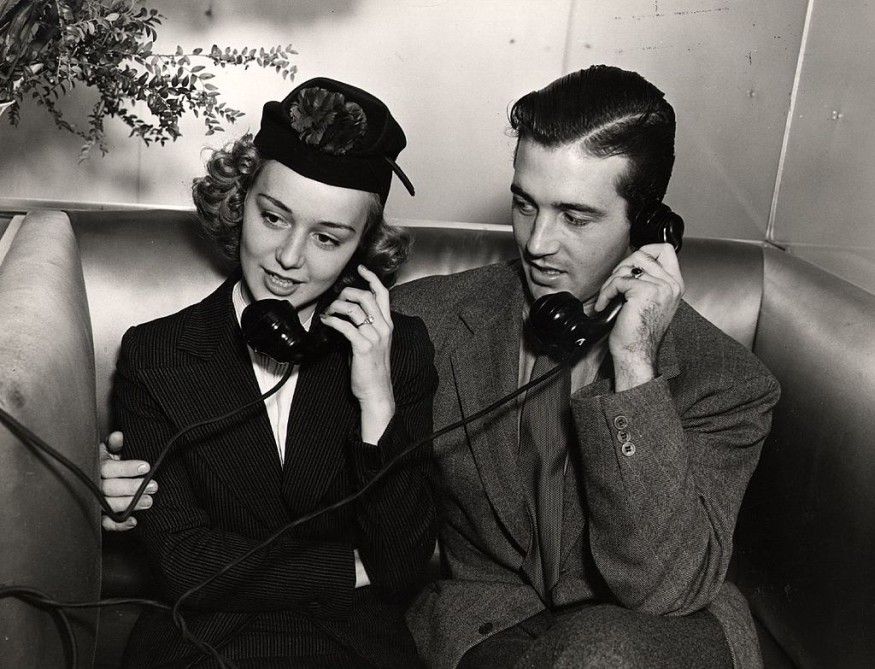Because of COVID-19 limitations and imposed physical distancing to deter virus spread, many of us have suffered from feelings of alienation and loneliness over the past year. However, the good news is that even 10 minutes on the phone with anyone will have a huge effect.

New research released in JAMA Psychiatry showed that making short phone calls many days a week can help people feel less lonely. This type of service is ideal for people who live alone, those covering, or those in nursing homes and cannot see their loved ones.
Phone Calls: Did It Decrease Anxiety and Depression?
The study, titled "Effect of Layperson-Delivered, Empathy-Focused Program of Telephone Calls on Loneliness, Depression, and Anxiety Among Adults During the COVID-19 Pandemic," said individuals who got calls reported feeling 20% less alone on average.
During the first week, calls lasted a little longer than 10 minutes. But they gradually decreased to 10 minutes for the remainder of the month-long analysis.
Researchers used a three-to-nine scale to determine isolation. Participants had an overall score of 6.5 at the outset of the analysis. But by the end, it had fallen to 5.2.
The influence of a fast phone call doesn't seem to end there. The calls have decreased anxiety and depression, according to the findings.
Researchers found that after the study, the number of adults who were at least mildly nervous had decreased by 37%, and the number of adults who were at least mildly depressed had decreased by 25%.
Professor Maninder Kahlon, the study's lead author, told PhillyVoice that these findings were "much more striking" than the loneliness effect since "[they] hadn't predicted the degree of [the] result."
So, instead of messaging your friend to catch up, send them a call next time - it could just make a difference.
Hate Phone Calls? Here's How to Stay Connected While Being Physically Apart
Meanwhile, if you don't have access to a typical phone, the Australian government has proposed other options to stay in touch during this period.
Video calls
Video calls can be made and received on most smartphones and laptops, allowing you to see and hear the person you're speaking with. BBC shared a guide about how to make video calls on various phones. Tech Crunch has an article that walks you through different video calling solutions for different classes of people.
Online community
You can remain linked at any time by starting an online community where people can talk or leave messages. You may create a community with your families, employers, neighborhood or suburb, or friends. Your party may talk about something or have a specific theme, such as an online book club or gardening discussion group.
Internet games
Are you a gamer who enjoys getting together with other people to play games? Although playing board games with friends around a table is currently frowned upon, you can have a comparable experience using apps, tablets, or streaming services. To get you started, here's a list of games for small and big groups.
Online class
Many sites that deliver fitness and cultural courses are running online when they are closed. You may participate in a fitness class, flex with yoga, groove to the music, or learn to paint via an online art workshop. These classes are a perfect way to feel close to other people without worrying about viruses the whole time.
Virtual choirs and bands
Many people have used video chat to put their choirs and music groups together as a result of the pandemic. Find one that has already been created, or start your own and make some music.
Make postcards and letters.
When was the last time you wrote a letter to someone using a pen and paper? Write to someone you care for, or to someone you haven't spoken to in a long time, or leave a postcard in your neighbor's mailbox. Receiving mail is becoming extremely scarce these days, and you never know, they may respond.
Share your favorite books or movies.
Drop books or DVDs you've done into your neighbors' and colleagues' letterboxes. Bonus points if you have a note explaining why you liked them. Please encourage them to share their thoughts with you and pass the favor on to everyone they know.
RELATED ARTICLE : Your Happiness Might Very Well Be Inherited, Says, Scientists
Check out more news and information on Psychology in Science Times.












